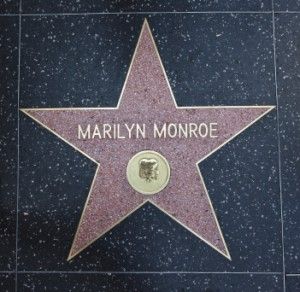

It is made possible with trademarks. Companies like CMG saw the business opportunity to trademark famous deceased celebrities’ names, images and likenesses. They found that by owning the trademark rights of famous deceased celebrities, they could market them for commercial use. This business is very lucrative. In fact, Forbes Magazine stated that the top five dead celebrities earned $780 million.
Advertising companies are now working with companies like CMG to license the use of their celebrities. From an advertising company’s perspective, it is much easier to work with a celebrity that is dead than alive. With a living celebrity, advertising companies have to constantly worry whether their endorsed celebrity will maintain the image they need to successfully market the brand. If the endorsed celebrity becomes involved in a scandal, this could reflect poorly on their brand image and cost them thousands of dollars on wasted marketing efforts.
Do you remember the Tiger Woods infidelity scandal in 2009? At the time the scandal came to light, Tiger Woods was endorsing AT&T, Accenture, and Gillette. When the scandal broke all these companies were forced to drop Tiger as an endorser. He was no longer seen as a likeable celebrity in the public eye. I am sure these companies all lost thousands in marketing efforts because of his scandalous behavior.
Companies like CMG, provide the branding giants with a safer, more affordable alternative. They can license the use of dead celebrities. The advertising agencies no longer have to fear scandals. Their endorsers are dead. Their histories have already been written. Therefore using them to endorse products is easier and cheaper.
It is a win-win situation. Companies like CMG and the branding giants make money off the backs of dead celebrities. Everyone is happy, right? Wrong. What about the dead celebrities and their families? Don’t they have any rights? How can they prevent other people from profiting off their deceased? How can they prevent them from using their loved one to endorse products that they know the celebrity would never have endorsed if alive?
Descendants of famous celebrities and current living celebrities are fighting back to try and win right of publicity. Right of publicity is defined by Wikipedia, as the right of an individual or corporation to control the commercial use of an individual’s name, image, or likeness. As more and more companies are exploiting the deceased celebrities for commercial use, publicity rights laws are now starting to become passed in each state. The problem is that each state has different laws. States like California, home of many famous celebrities, have passed strong publicity rights that allow celebrities the right to trademark their image and block others from using their image during their lifetime and 70 years after their deaths. Unfortunately, other states like New York do not have any publicity rights passed. Whatever state the celebrity resides in at the time of death, will determine the publicity laws.
Bill Cosby became alarmed when he discovered Massachusetts did not have any publicity rights. He wanted to protect his image. With his push forward, the state of Massachusetts passed a law this year that would give him and others that reside in the state of Massachusetts right over their image and likeness for decades after they have died.
If other celebrities wish to exert their right over their image, then it would be wise for them to trademark their image. Then pursue legislative course to pass new publicity right laws within their state as Bill Cosby did in Massachusetts. Otherwise, their legacy will be left in the hands of strangers to exploit as they see fit.
At our firm, giving back is not just something we do - it's who we…
At Widerman Malek, our team has helped numerous clients manage the complexities of divorce in…
In the world of intellectual property, inventorship is a critical and often misunderstood concept. Determining…
When it comes to resolving business disputes, mediation offers a uniquely effective approach that goes…
Widerman Malek is excited to sponsor the Junior Achievement of the Space Coast Business Hall…
Beneficial Ownership Information (BOI) reporting under the Corporate Transparency Act (CTA) is back in effect…